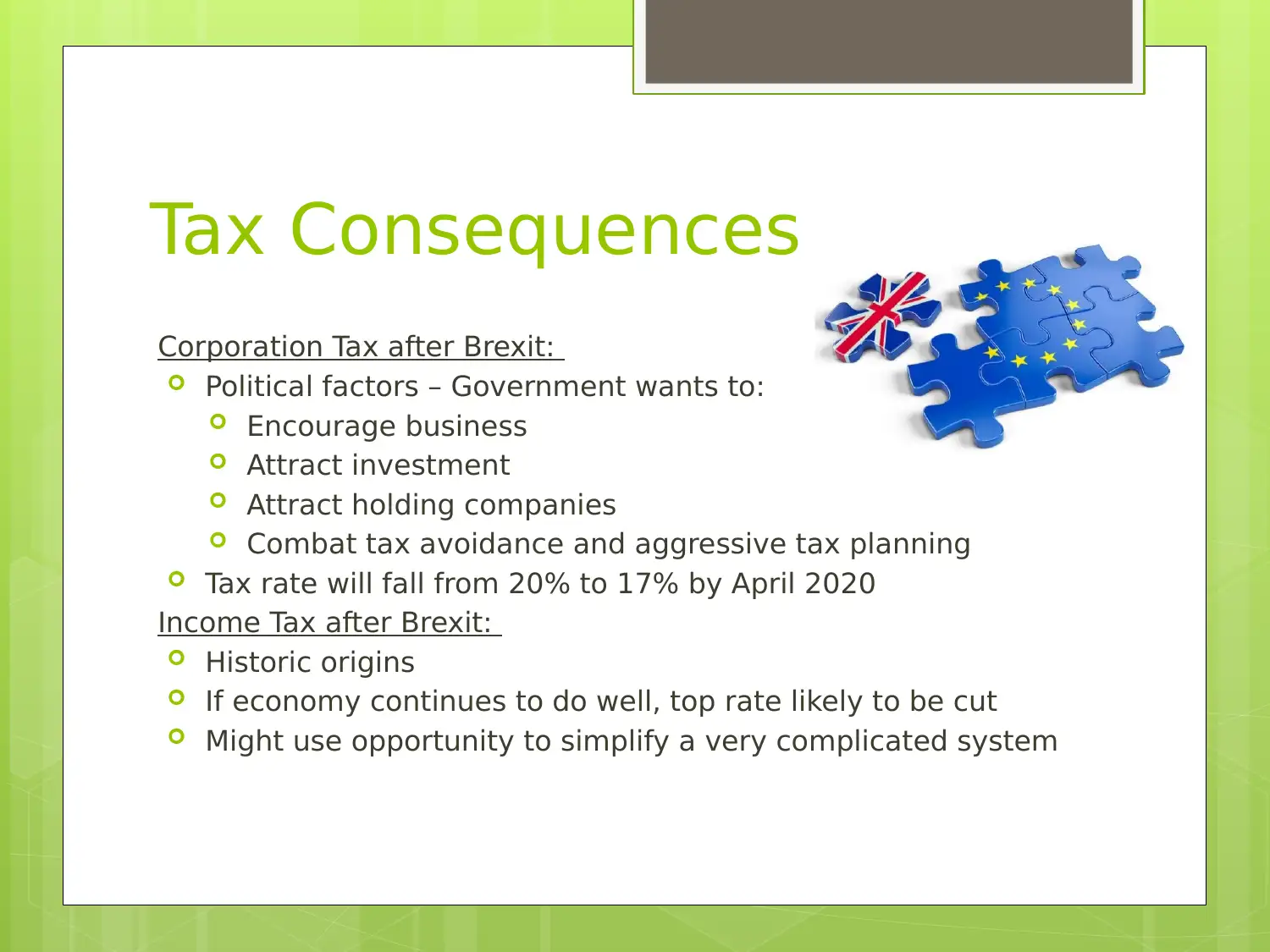Business Research Methods Presentation: The UK Economy After Brexit
VerifiedAdded on 2023/04/24
|15
|870
|322
Presentation
AI Summary
This presentation provides an analysis of the UK economy following Brexit, examining the reasons behind the UK's decision to leave the EU, the Brexit process itself, and the evolving relationship between the UK and the EU. It explores whether the post-Brexit relationship leans towards a hard or soft Brexit model, detailing the legal and tax consequences for businesses and individuals. Key areas covered include the impact on financial services, corporation tax, value-added tax, and income tax. The presentation concludes that Brexit will have a significant and potentially challenging impact on both the UK and the EU, necessitating temporary agreements to maintain certain functions and highlighting the gradual divergence of UK law over time. Desklib provides access to similar solved assignments and past papers for students.
1 out of 15



















![[object Object]](/_next/static/media/star-bottom.7253800d.svg)